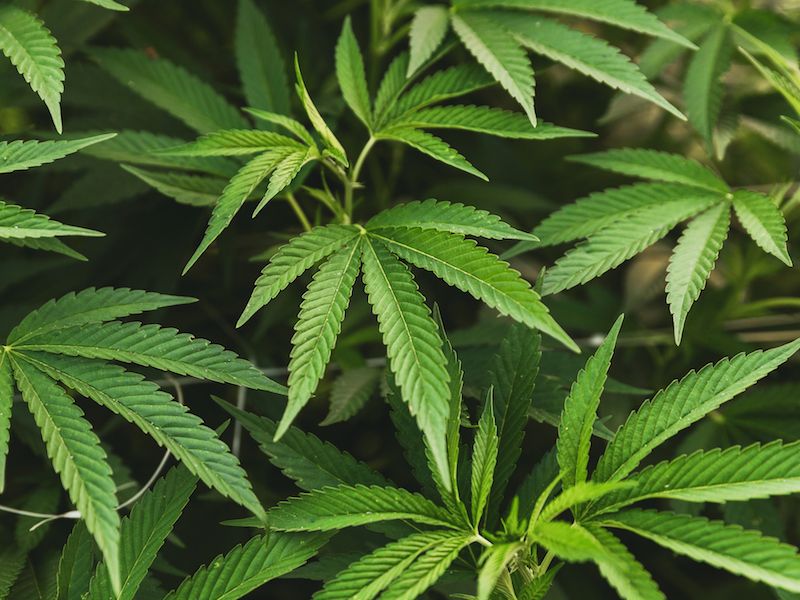
Public opinion surrounding cannabinoids and marijuana have transformed remarkably in the past several decades. THC, cannabinoids, and even marijuana are legal for medical use in most states. Far fewer states have legalized marijuana for recreational uses, but even that would have been unimaginable even just ten or fifteen years ago.
Cannabinoids are categorized as a group of substances that comes from the cannabis or marijuana plant. New things are being uncovered about cannabinoids all the time despite their recent legalization in some states. We often consider these particular compounds as possessing universal healing qualities, but existing research implies there could also be negative impact including a strong connection between cannabinoid use and the occurrence of tinnitus symptoms.
Numerous Forms of Cannabinoids
There are lots of forms of cannabinoids that can be consumed now. It isn’t just weed (or ganja, or pot…..ok, there are a lot of nicknames for marijuana so let’s move on). Oils, mists, pills and other variations of cannabinoids are currently available.
The forms of cannabinoids available will vary state by state, and under federal law, many types are still illegal if the amount of THC is over 0.3%. That’s why some people tend to be quite cautious about cannabinoids.
The issue is that we don’t yet grasp much concerning some of the long term side effects or complications of cannabinoid use. One example is the new information about how cannabinoids impact your hearing.
Cannabinoids And Your Hearing, Some New Research
Whatever you want to call it, cannabinoids have long been associated with helping a wide range of medical ailments. Seizures, nausea, vertigo, and more seem to be improved with cannabinoids, according to anecdotally available evidence. So could cannabinoids help with tinnitus? That’s exactly what researchers decided to figure out.
Seems as if cannabinoids might actually trigger tinnitus. Ringing in the ears was documented by over 29% of participants after using cannabinoids. And that’s in people who had never dealt with tinnitus before. Furthermore, marijuana users were 20-times more likely to report having tinnitus symptoms after 24 hours.
Added research indicated that marijuana use could exacerbate ear-ringing symptoms in people who already suffer from tinnitus. So, it seems rather certain that cannabinoids and tinnitus aren’t very compatible.
How Cannabinoids Make Tinnitus Worse
There are a couple of tangible ways that cannabinoids can cause your tinnitus to get worse. The first is that your tinnitus can happen more frequently. Cannabinoids can also make those tinnitus episodes more extreme. Louder ringing that can be harder to ignore can be the result.
The study also appears to suggest that cannabinoids are capable of causing the development of the initial symptoms of tinnitus. To put it a different way: after you start using cannabinoids you may develop tinnitus symptoms even if you had no symptoms before.
It’s Still Unclear What Causes Tinnitus
Just because this link has been discovered doesn’t necessarily mean the underlying causes are all that well known. It’s evident that cannabinoids can have an impact on the middle ear and symptoms of tinnitus. But it’s far less obvious what’s causing this impact.
But we know that using marijuana, as opposed to other mood altering substances such as alcohol, can cause tinnitus.
Of course, we will continue to do the research. People will be equipped to make a smart choice concerning which of the many kinds of cannabinoid to go with as we gain deeper insight into their connection to tinnitus.
Beware The Miracle Cure
Recently there has been a lot of hype about cannabinoids by marketers. In part, that’s due to changing attitudes about cannabinoids themselves (and, to an extent, is also a reflection of a desire to turn away from opioids). But cannabinoids can and sometimes do produce undesirable results, according to this new research, and this is particularly true regarding hearing.
You won’t be able to escape all of the cannabinoid enthusiasts and evangelists in the world, the marketing of cannabinoids has been extremely aggressive.
But tinnitus and cannabinoids are clearly associated based on this research. So no matter how much advertising you see for CBD oils, if you’re concerned about tinnitus, you should most likely avoid them. It’s worth being cautious when the link between tinnitus and cannabinoids has been so firmly demonstrated.

